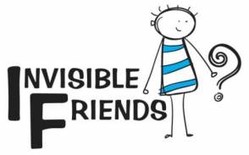Is God just another “imaginary friend” for youngsters?
This may seem an unusual question for a seminary professor to ask, but for the Rev. J. Bradley Wigger, it represents serious research into a playful subject; research with significant potential application for theologians.
Wigger, who is professor of Christian Education at Louisville Presbyterian Theological Seminary (LPTS), has been working for two years on the project, in which he and colleagues interviewed children to try to learn how youngsters’ play relationships with imaginary friends influence their cognitive development, including the ways that they think about God.
Now, Wigger will be able to take the project international ― interviewing children in two other countries ― thanks to a second grant of $45,000 from the John Templeton Foundation. He received the first Templeton grant for the project after participating in a workshop on cognition, theology, and religion at Oxford University in England in 2009.
Wigger said that Oxford sent a broad invitation to professors in the humanities and professors who don’t usually do empirical studies ― to talk about an emerging scholarly field called Cognitive Science of Religion.
Those doing such research come from a variety of disciplines such as religious studies, cognitive psychology, and anthropology, Wigger explained. The field includes religious practitioners and atheists alike.
“All of us are interested in how the mind (cognition, knowing) works in relation to religious experiences, whether it’s believing in invisible beings, or exploring what sacred music, texts, rituals, or practices do with our ways of knowing and our ways of life with others,” Wigger said.
“It’s about simply trying to understand how the mind works with reference to religious things: studies around what happens to people’s minds and feelings when they read religious texts; wondering if religious ideas are more easily remembered than other ideas,” he added. “Stories remembered are stories that endure.”
But, invisible playmates?
Wigger said his interest in this subject was inspired by his daughter, Cora, now 22, who, as a three-year-old, had an imaginary playmate named “Crystal,” because you could see through her.
From this happy family memory came the name of Wigger’s project, “See-through Knowing, Learning from Children and their Invisible Friends.”

Is God just another “imaginary friend” for youngsters?
Wigger’s team interviewed 40 Louisville-area children between the ages of 2 and 9. One child’s imaginary playmate, perhaps tellingly, was the Holy Spirit.
A video clip of a charming 4-year-old on the project Web site shows how the project worked: The little boy is shown a box of crayons and asked what’s inside. “Crayons!” he shouts gleefully. Shown that it contains rocks, he assumes that his friend, a dog, his imaginary friend, a duck named Quack Quack, and God will be aware that the box contains rocks, too.
“The question that feeds this test is the ‘Theory of Mind,’” Wigger said. “When can children differentiate their own thoughts and perspectives from those of other people?”
Project results suggest that by the age of 5 or 6, he said, most children understand that their friends ― and their imaginary friends ― may not know what they know; but they recognize that an omniscient God would know it all.
“We want to learn more about how children think, their capacity for religious ideas, and how religious thinking develops,” Wigger said.
“How on earth do we help children understand an invisible God? That’s the key question. It seems you almost can’t stop them. They do it really easily.”
Robin Garr, a former news reporter and columnist, is a Master of Divinity student at Louisville Seminary and co-owner and publisher of Cliffwood Organic Works

